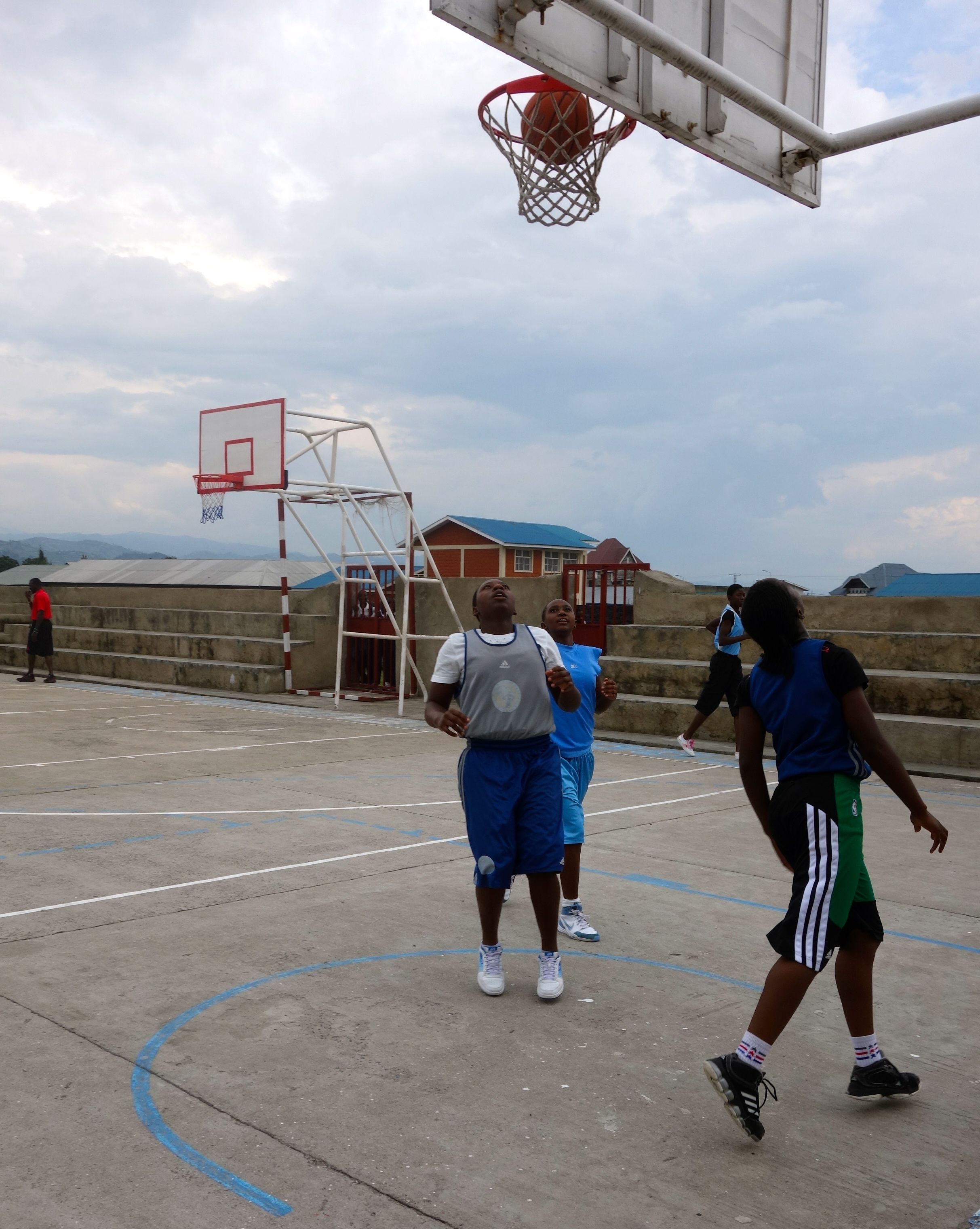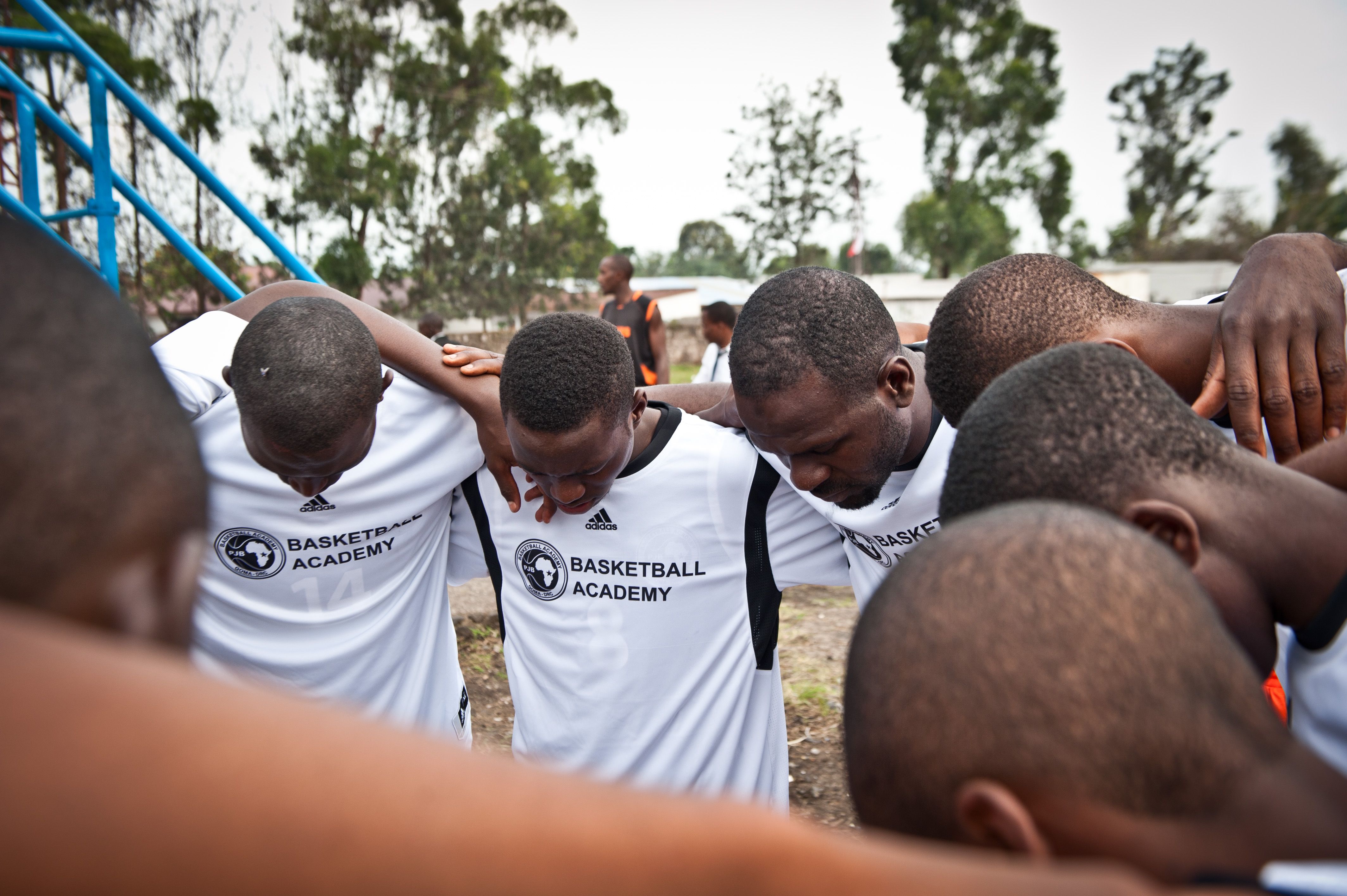GOMA, Congo—“You come here, you play hard, you work hard.”
That’s what Dario Merlo says to those asking to join PJB, or Promo Jeune Basket (Promote Youth Basketball), a basketball program in Goma, the largest city in eastern Congo. There are plenty of takers—currently more than 650 kids, ages 5 to 25, boys and girls, all learning to be masters of the three-man weave and the pick-and-roll.
Dario was born in Goma and moved to Belgium in 1994 during the Rwandan genocide. He was 11 at the time, just the right age to fall in love with basketball. He played whenever he got the chance.
He studied history and social science in Brussels, and, in December 2005, returned to Goma. He immediately found a league so he could keep playing basketball. When a friend didn’t show up for a pick-up game he found four kids to play with. He soon became a regular, teaching these boys a few drills, working on their jump-shots and lay-ups. Before long, he was buying them new shoes and paying their school fees.
At first it was just for fun. But by 2009, Dario had become serious about starting a youth basketball program–one that would transform lives. That’s when he created PJB and then oversaw the building of three new basketball stadiums.
Dario does have a day job—he is country director for the Jane Goodall Institute, a global conservation non-profit. PJB is part of the Institute’s Roots & Shoots movement that involves youth from more than 130 countries in community service. And it is Jane Goodall herself, humanitarian and chimpanzee expert, who inspires him to carry on.
Instead of coaching, Dario now recruits coaches and helps train them, a responsibility he does not take lightly. “A coach is a leader and a role model for everybody,” he explains. “A coach cannot be drunk in the street.”
Gérard, one young player who asked to be a coach, was a former street kid. “He said he wanted to train people. I couldn’t believe this. He was only eighteen,” Dario says. “But he turned out to be one of the best. Tough, humble, honest, hard-working, also an elite player.”
All PJB basketball players must be enrolled in school. Dario also hired an English teacher and insists that everyone take after-school English lessons. The rationale is simple. “If you have integrity and skills and speak English, you have the best chance to find a job,” he says.
What he does, however, is not just about future employment—it’s about character building and teamwork. He tells the young players, including the 150 girls in the program, that trying their best is what will bring ample rewards where it counts the most. “We teach them not just to be a good player but also a good guy,” he adds. “They need to be good teammates, to be disciplined. This can be taught. And they like it. They dream about playing in America.”
But he also wants more for them—he wants them to be leaders of change in their own country. He insists they work hard and that they take responsibility for their actions. “When they grow up they will have a network of people with the same values.”
Few might prove as single-minded as Dario to take on such a challenge. The fighting in and around Goma has destroyed schools and homes and caused countless innocents to be traumatized and uprooted. Goma is the capital of the North Kivu province, where 32 percent of citizens between the ages of 17 and 22 have less than two years of education, according to UNESCO; that percentage is double the national average. Many young people have had to leave their homes—in July 2013, UNHCR (the United Nations refugee agency) reported that 967,000 people in North Kivu had been displaced due to the conflict. Yet Dario is determined to see that as many children as possible beat the odds, stick with basketball, and stay in school. He also encourages his young students to care for the environment. Weekend activities include planting trees (between 500 and 2,000 a year), installing trash cans, and cleaning up neighborhoods.
Not that the kids don’t stay focused on basketball. As the players get older, the games become more competitive. There are 11 teams in the boys’ first division and four for the girls. PJB provides scholarships for more than 100 of the top players. Dario wishes they could afford more. “Ninety percent are deserving,” he says.
Christian Maliro is 18 and started at PJB three years ago; he now has an academic scholarship. “I’ve learned how to behave in society. I know to protect the environment, to plant fruit trees here and at home,” he says. But he also likes the competition on the court. “My coach understands my weaknesses. He’s not arrogant.”
Sometimes parents are reluctant to let their children participate. They want them to be available to do chores, such as fetching water. “But parents eventually come around,” Dario says. “They start thinking practice is important. Team spirit is good stuff. We teach values. If you lose your phone in the PJB area you will get it back. Parents become proud of their kids.”
Kem Knapp Sawyer is a contributing editor at the Pulitzer Center on Crisis Reporting.
This article was also published by TruthAtlas on February 13, 2014.










!["Whatever they do later in life this [PJB] will help them," says Dario Merlo, the founder of PJB. Image by A.Graham/PJB. Democratic Republic of Congo, 2013.](https://legacy.pulitzercenter.org/sites/default/files/styles/node_images_768x510/public/01-27-14/core_values_page_de_garde.jpg?itok=sMpqEOsd)




















